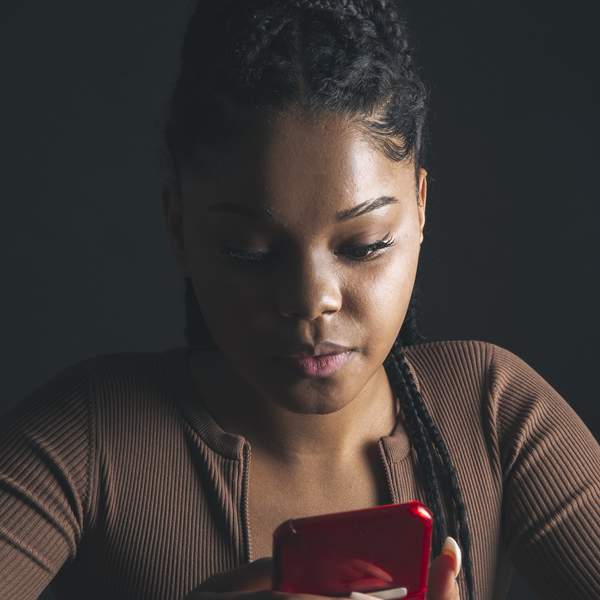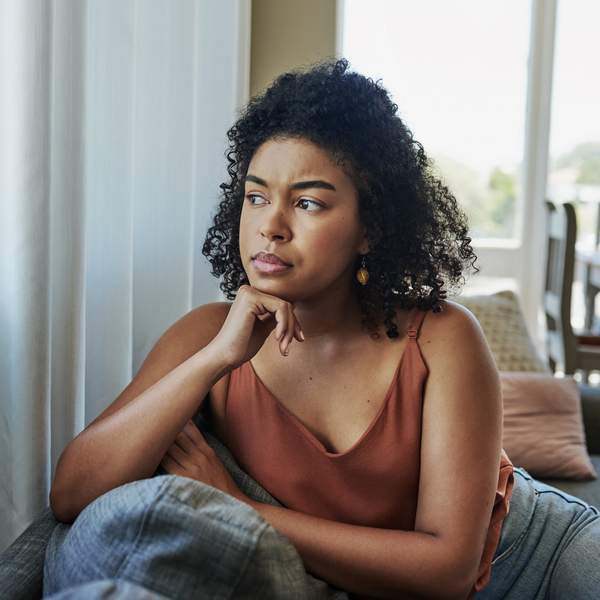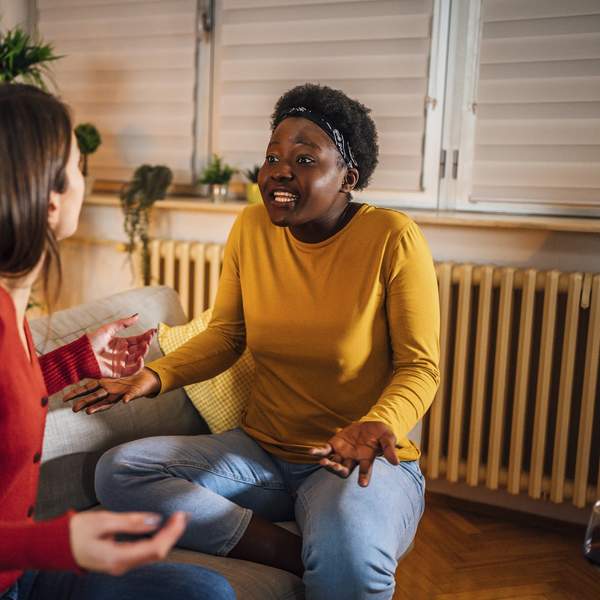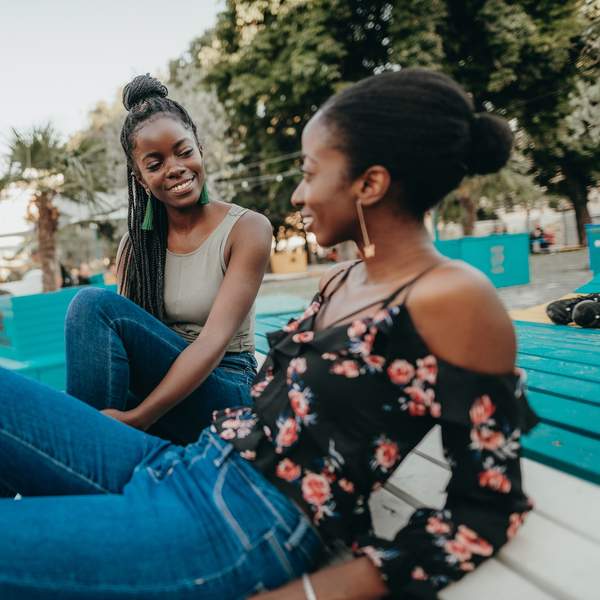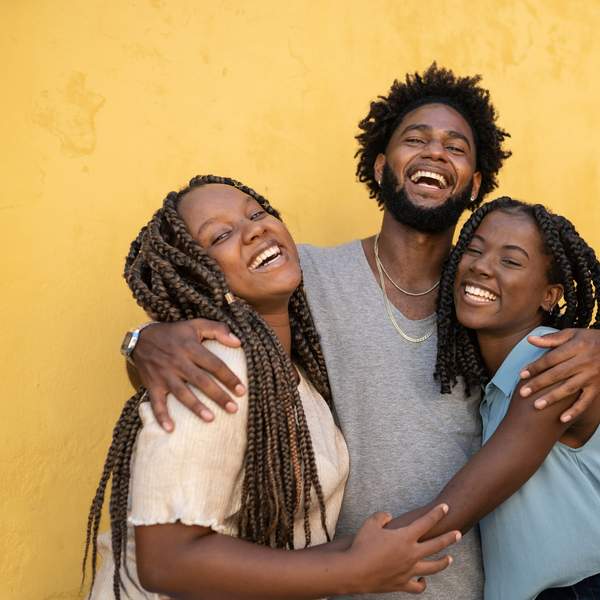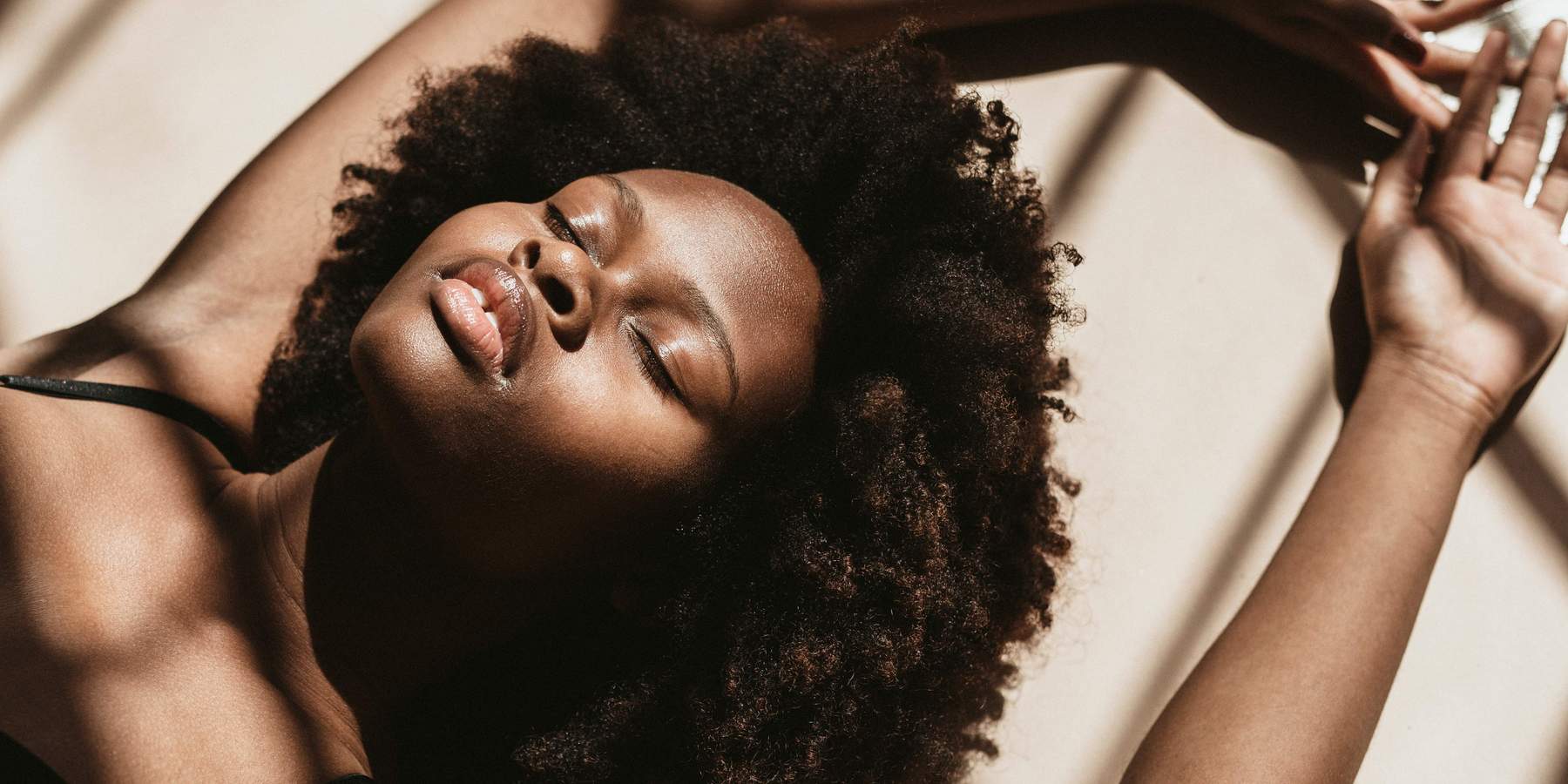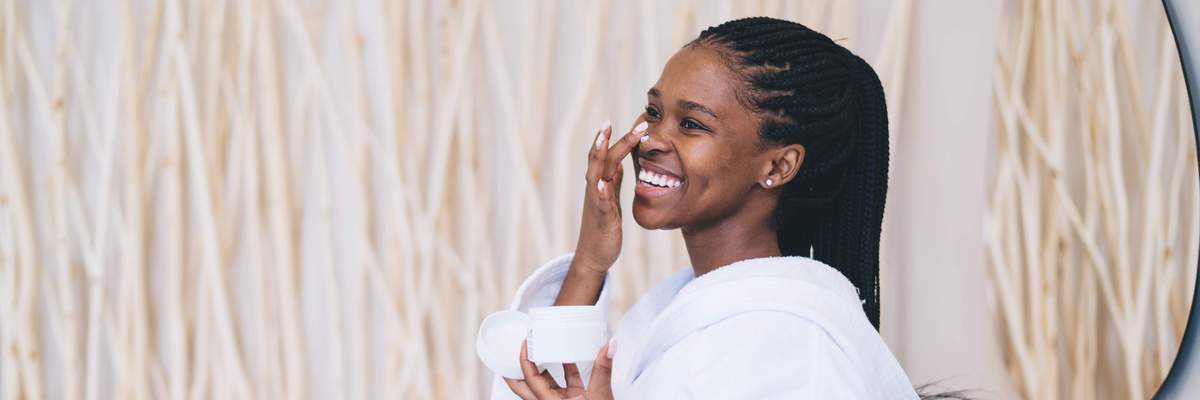German philosopher Friedrich Nietzsche once said, “It is not a lack of love, but a lack of friendship that makes unhappy marriages.” At close to two decades of working with married couples, I agree with this man 1000 percent. It’s actually the main motivation for why I once penned, “Are You Sure You're Actually FRIENDS With Your Spouse?” because, the reality is, if you’re not friends with the person who you vowed to share every aspect of your life with, for the rest of your life, it’s going to be very difficult (if not damn near impossible) to honor that level of commitment. Without question, I will now and forever die on the hill that if you like your partner, you can make it through the not-so-in-love-right-now moments. Vice versa? Eh…not so much.
A basis for why I feel this way? Another quote immediately comes to mind. Famed author Jane Austen once wrote: “There is nothing I would not do for those who are really my friends. I have no notion of loving people by halves, it is not my nature.” You know, back when I also wrote “10 Things You Should Absolutely Expect From Your Friendships” for the platform, I shared that some of the traits of a friend — a real friend — include loyalty, honesty and compassion. And if you can’t say that your spouse is this way (as they say the same thing about you), chile…what is y’all doin’ over there?
So, why am I talking about marriage when this article is supposed to be about friendship? It’s because, something that life has taught me, kinda sorta the hard way, is we should vet potential friends — especially close friends — almost like we would a spouse.
And if you keep reading, I think you’ll get why I framed the intro in the way that I did.
Why Friendships Are Still Hella Essential
 Giphy
GiphyOkay, so before I get into why it seems that people have fewer friends than they ever had before, let me just say that, even as an ambivert who enjoys my own company and has absolutely no problem with being alone a good amount of the time, every personality type needs friends. That’s not just my opinion; science makes it a fact. Not only do studies support that healthy friendships help us to feel more satisfied with our lives, but they can also reduce our chances of experiencing depression, stress, and anxiety and they increase longevity overall.
This is why — without going too deep because it’s kind of another topic for another time — it’s important to not allow past hurts and disappointments from former friends (or folks you thought were your friends) to cause you to build up walls as you declare that you don’t need anyone. When you do that, all you’re really doing is working against your own health and well-being. The saying that “no man (or woman) is an island”? It is absolutely true.
That said, even if it’s just a couple of people, make sure that you’ve got individuals in your life who you can call a friend and, in turn, they can say the very same thing about you, okay?
Are All of Those People Your Actual Friends? Or Do You Just Happen to Know a Lot of Folks?
 Giphy
GiphyAight but what if you happen to be someone who swings on the other side of few? Meaning, if someone were to ask you how many friends you had, you’d quickly declare that you’ve got too many to count. Listen, not to patronize or anything yet, but whenever I hear folks (especially if they are over 35) say something along those lines, it takes me back to high school — a time when so many of us thought that so long as we knew a ton of folks and/or we were popular, clearly, we had many friends.
Wisdom and pure ole’ dealing with humans on a consistent basis will teach you that an article that I wrote a few years back for the platform has a title that is spot-on: “According To Experts, We Only Have A Few Friends — Here's Why.” According to it, the average American (based on a survey that was conducted) has somewhere around 16 friends. Oh, but wait. Last fall, I wrote another article for the platform entitled, “What's The 'Five Friendship Theory' All About?” According to it, if you’re someone who takes the word “friend” and the responsibility that comes along with it very seriously and quite literally, as an adult, you can probably only maintain about five close friendships.
Why? Well, that brings in another article that I once wrote: “Life Taught Me That True Friendships Are 'Inconvenient.'” Chile, I don’t know about y’all but my friends know that if I call you that, you can call me in the middle of the night, and you can have money towards your rent (I’m not your mama but we all have hard times sometimes) and I’m gonna have your back in a way where you’ll wonder where you stop and I start — and no, I don’t have a lot of bandwidth for a ton of those people.
Okay, but what if you’re someone who is like, “I know that I have more than 16 and definitely more than five friends, no question”? The next thing that I would encourage you to explore is a theory by Aristotle (check out “According To Aristotle, We Need ‘Utility’, ‘Pleasure’ & ‘Good’ Friends”). Without even realizing it, many of us have people who we use the word “friend” for when…it’s kind of like how social media apps say “friend”: we’re familiar with one another and enjoy some of the same things, we might even have some of the same goals; at the same time, though, we’re not “all-encompassing friends.” We just get along really well at work (utility friends) or like to go to brunch at the same spots sometimes (pleasure friends).
Taking all of this into account, are you sure that you have a ton of actual friends? Or do you just happen to know a lot of people and you use that word for the lack of having another?
And that brings me to my next point.
There’s A LOT of Space Between “Friend” and “Enemy”
 Giphy
GiphyIf you read a lot of my friendship content, something that you will notice me saying quite a bit is that there is quite a bit of space between friend and enemy. It needs to be mentioned, as often as possible, because there are some people who get offended if you don’t consider them to be a friend — and that is unfortunate. I say that because the conclusion shouldn’t automatically be that they are your enemy just because “friend” isn’t what immediately comes to your mind.
They can be an acquaintance. They can be “cool people.” There is someone in my life who, while we’re not friends in the traditional sense, we are each other’s confidant; years ago, we agreed that we would be the place to tell each other whatever and it would stay between us — that is the main purpose that we serve in each other’s lives. Some people, you may consider to be spiritual family in the sense that you care for them and have some deeply profound things in common and still, they are not exactly a friend (I mean, a lot of blood relatives aren’t “friends” with each other).
All I’m trying to say here is we’re all too old now to only put folks in two boxes when it comes to this particular relational dynamic: friend or enemy. So, take some time out to seriously reflect on what you consider the various people in your life to be. I can promise you from personal experience that the sooner you know and the clearer you are, the easier it will be on everybody — because needs and expectations will be clear to you (and them once you articulate them) too.
What Got Folks to Having Less Friends? The Pandemic Plays a Significant Part.
 Giphy
GiphySo finally on to what inspired this piece to begin with. A part of it was an article that was published last year by Big Think entitled, “Americans more than ever have no friends. Here are 5 steps to make more friends.” Another was something that The New Yorker published back in 2021; it’s entitled “What COVID did to friendship.” Y’all don’t have enough time and I don’t have enough space to get into the fact that, just because the media may be talking about it less, that doesn’t mean that we’re not still in a pandemic.
In fact, one article stated my thoughts on it quite well when it said, “The real question, then, is not whether COVID is still a pandemic, but how much COVID illness and death are we willing to accept?” SMDH. And one of the things that has come with experiencing COVID is an interesting type of PTSD: detachment. There are plenty of articles out here to support the fact that my saying that is not merely my opinion.
Even according to the American Psychological Association, loneliness damn near skyrocketed, especially during lockdown and, unfortunately, a lot of people have not recovered from it. That’s why it did not surprise me at all when I read that more than ever, many people do not consider anyone to be a best friend; fewer people are relying on friends for any type of real support, and there is a semi-steady decline in people having friends, especially quality friendships, overall.
In fact, as far as close friends go, currently, close to 50 percent of Americans say that they only have three or fewer, and a relevant contributor to that was what the pandemic revealed as far as people’s proactive participation in other individuals’ lives (I actually read that young women were the ones who lost touch with friends during the peak of the pandemic the most). I also thought it was interesting that some studies cite that 12 percent of Americans say that they don’t have any friends at all.
Is the pandemic the only cause? No. So are things like people working more hours and spending more time online than they probably should (which also increased due to the pandemic, though). To that, Teen Vogue once published, “Social Media Is Impacting IRL Friendships” and Healthline once published, “Social Media Is Killing Your Friendships.” Then we also have to factor in having families of our own which can also take up a lot of time, and that sometimes can cause us to forget to nurture our friendships; so, before you know it, they fade to black. Not due to a fallout or anything, just…life.
And all of this? Some people are saying that it has led to what is known as a “friendship recession.” A huge flag about that is there are reports that a drop in close friends can cultivate a type of loneliness that is just as health hazardous as smoking a whopping 15 cigarettes a day. Not good, y’all. Not. Good.
Quality over Quantity Is Key. Just Make Sure That You Have a Friend or Two.
 Giphy
GiphyOkay, so what is my overall point? That’s a fair question. Just like sometimes “life life-ing” can make us forget to tend to our friendships, if you don’t stumble across content like this, you might not even realize that you’re feeling mentally stressed, emotionally strained, or super isolated and it’s all because you need to prioritize your friendships — because your mind, body, and spirit need them. Again, science has proved it.
At the same time, if, like a client of mine, you find yourself getting a little bit paranoid because you have noticed that over the past several years, your close friend count has been far less than what it used to be, this article proves that you are absolutely not (pardon the pun) alone. Honestly, there’s nothing wrong with having a very small circle of friends because quality is gonna beat out quantity every time; you just need to assess when it happened and why so that you can be sure that you are choosing it to play out that way and it’s not due to some underlying cause that you hadn’t taken into consideration — until now.
An Italian priest by the name of Thomas Aquinas once said, “The happy man in this life needs friends.” Even if it’s just one or two people, please make sure that you have folks who aren’t just your friend but your very close friend. You need them. They need you.
Everyone else, figure out where they fall and nurture accordingly. Life is a lot. We all get by with the help of our friends. Real talk, y’all. Thank goodness for them.
Let’s make things inbox official! Sign up for the xoNecole newsletter for daily love, wellness, career, and exclusive content delivered straight to your inbox.
Featured image by jose carlos cerdeno martinez/Getty Images



